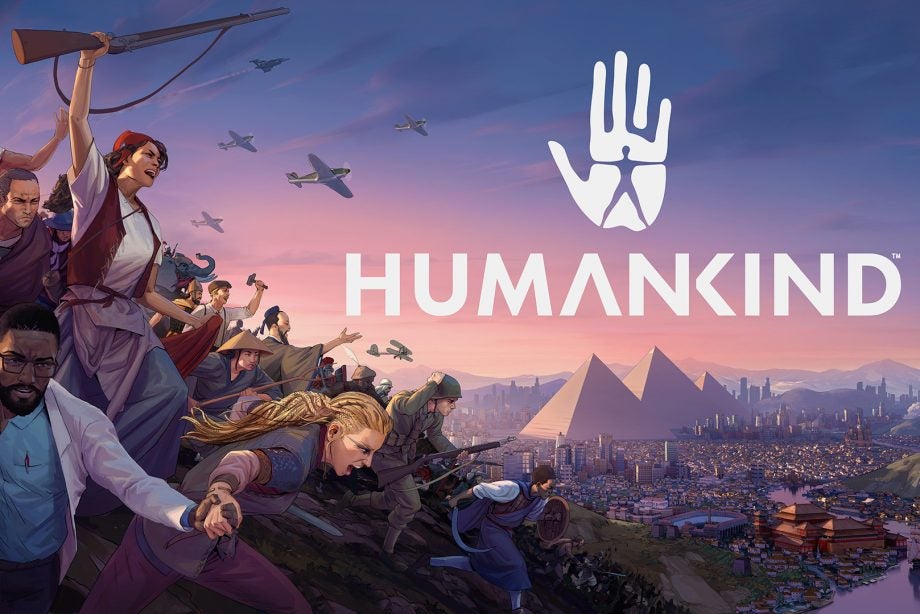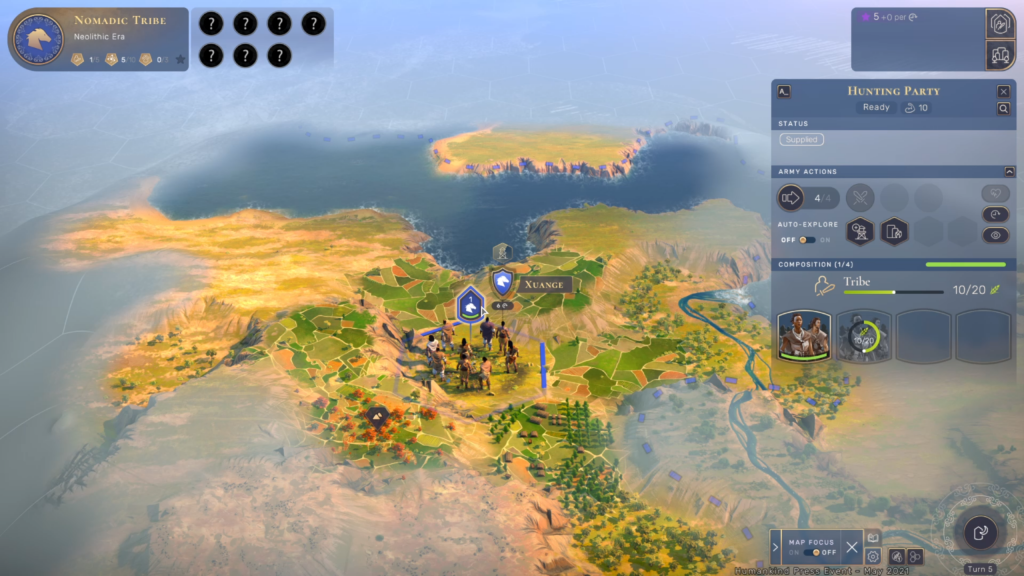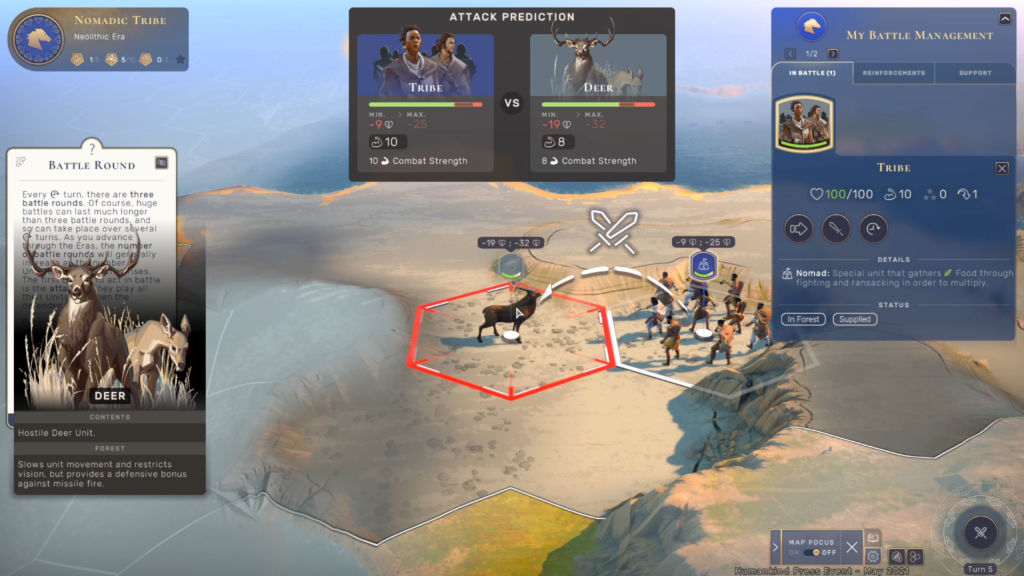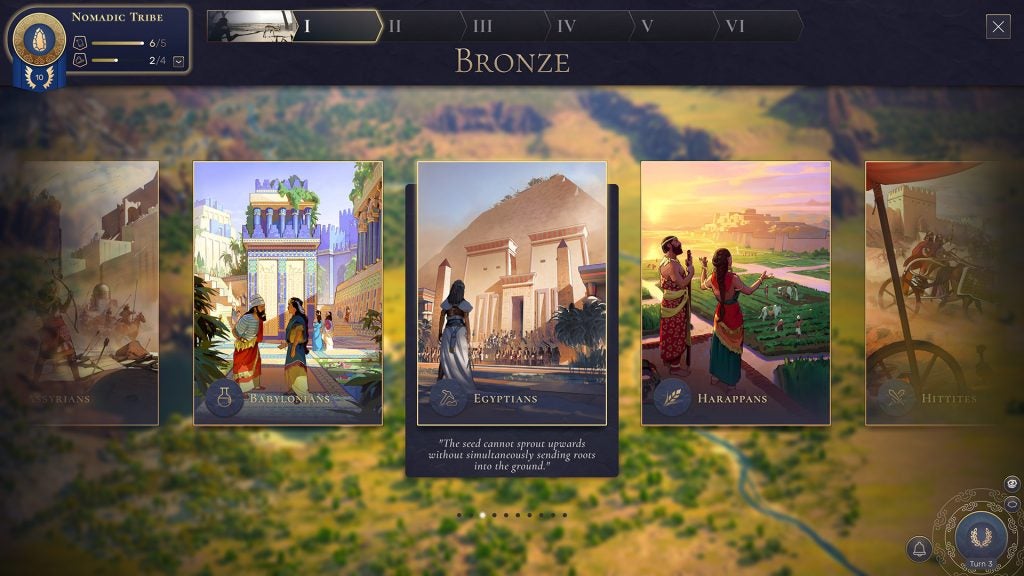Humankind: Everything you need to know

Humankind is an upcoming turn-based strategy game for PC, which looks to have been heavily inspired by the Civilization series.
Humankind allows you pick from 60 different historical cultures, and mesh them together for a unique combination. This differs to Civilization 6, which asks you to become an established historic leader.
Your culture will then gradually progress from the Neolithic Era to the Contemporary Era, as you switch focus from harvesting and farming to building expansive cities and developing technology.
The main objective of Humankind is to build fame, which can be done in many different ways, whether that’s discovering wonders of the world, winning battles or sending a rocket to the moon. This allows for a variety of ways to play the game, so you can be as hostile or docile as you please.
For more on Humankind, including our hands-on preview, keep reading on. And for future updates, keep this page bookmarked.
Release date
Humankind will be available to buy from 17 August 2021 on Steam, Epic Game Store and Google Stadia.
Price
The original price of Humankind is £47.99 on Steam, but the Digital Deluxe Pre-Purchase Edition is currently available for pre-purchase at just £39.83.
This edition features the game, as well as digital soundtrack, Unit & Tech tree poster and the Notre-Dame pack.
Trailer
Gameplay
Amplituide Studios gave us two hours of hands-on time to get a better look at Humankind’s gameplay.
You start off as a wandering tribe looking for a place to settle. The map uses a tile-based grid system, very similar to the Civilization series. Some tiles boost the farming output of your settlement, while others can increase productivity. Certain tiles will also feature luxury resources which can provide handy perks and be used for financial gain when trading.
Like with Civilization, food is used to grow your population and expand your settlement, while productivity speeds up construction.

During my playthrough, I was never once attacked by an opposing settlement. I asked Amplituide Studios about this, and they said other tribes will only attack you if they’ve got a good enough incentive, whether that’s because they’ve been provoked or need your land in order to keep expanding.
While this is more realistic behaviour, it does make the first couple of hours fairly slow-paced, but it should be good new to those who don’t particularly want to focus on combat.
That said, I was still able to try out the new combat system when fighting wild animals. While combat is arguably a weakness for the likes of Civilization, Humankind has clearly tried to up the stakes by locking players into a contained battle arena to make it more difficult to flee.

While the strength of your army is undoubtedly important, you can’t rely on it solely. Humankind allows you to deploy your army on a chosen tile during combat and them manoeuvre them around the map to get a tactical advantage. This means your environment is very important for battle, as you could be pinned back into a mountain range or use a large-open land to surround the enemy with multiple armies.
Once I had expanded my settlement and done enough exploration, I earned an era star, which allows me to pick a new culture and progress into the next era. I was then presented with a large number of cultures to choose from, including the combat-focused Mycenaneans and the sea-savvy Phoenicians. I settled for the Nubians, since it offers numerous perks for the economy.
Cultures also feature unique troop types and buildings with various buffs, incentivising repeat playthroughs with different cultures. What’s more, as you progress through the game you’ll be able to mesh together various cultures for different combinations. There are apparently more than one million possible combinations, so you’re empire can feel completely unique rather than just replicating some of history’s greatest civilisations.

Your chosen civilisations will also dictate your objective. For example, as the Nubians I could gain more fame points through trade than any other activity, making it easier to earn era stars to progress into the next era.
By the end of my 2-hour playthrough, I had earned five era stars in the Ancient Era, but needed another two to progress into the Classical era. My two-hour playthrough wasn’t the most eventful, but I found a lot of satisfaction in slowly developing my city and exploring the wilderness.
I’m excited to play more of Humankind and experiment with all of the culture combinations, as this feels like the game’s most unique feature. If you want to know more about Humankind, be sure to keep this page bookmarked for future updates.





